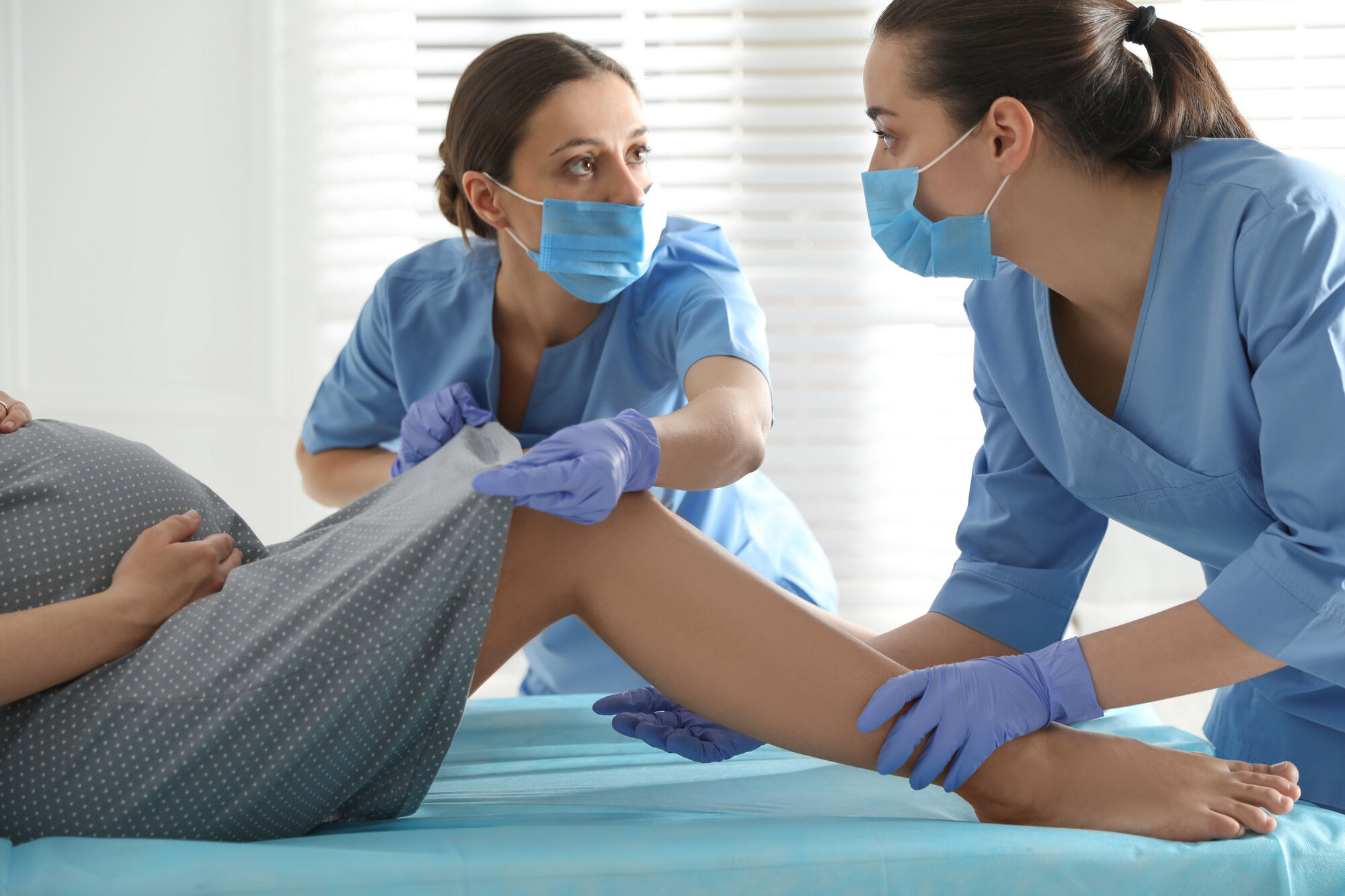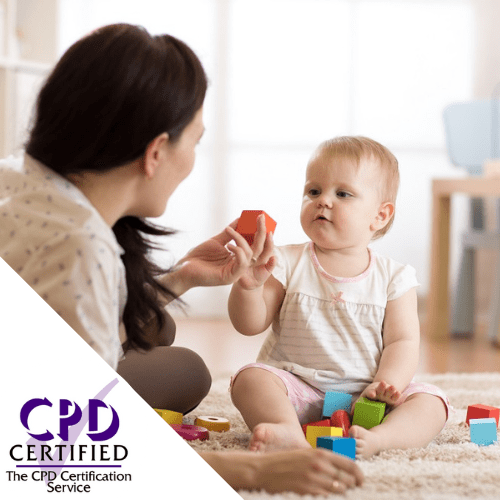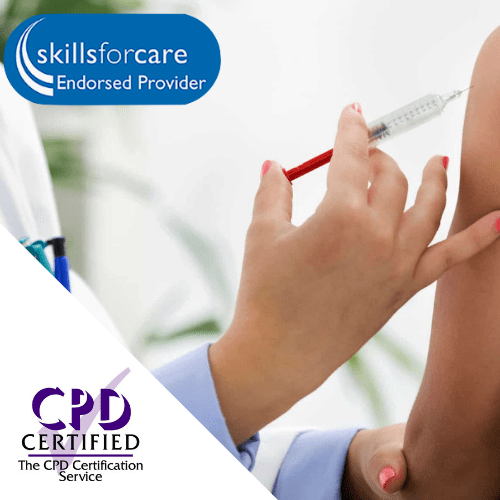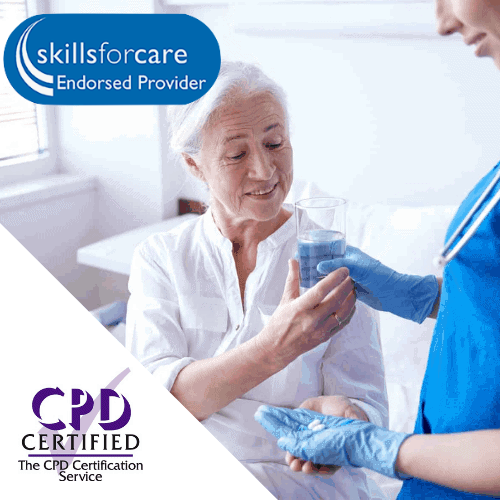In this Midwife Career Guide
What Does A Midwife Do?
A midwife is a trained and registered health professional who cares for and supports pregnant women and their babies, partners and families during the pregnancy and during and after childbirth. They have overall responsibility for the health of mothers and babies.
Midwives predominately work in healthcare settings, such as hospitals, GP surgeries, community health centres, midwifery-led maternity units and even people’s homes. They look after expectant mothers of various ages and backgrounds, including those with more complex pregnancies.
Midwives will be the main point of contact for expectant mothers and their partners and families. They have many duties, including assessing the care needed, examining and monitoring pregnant women and their babies, delivering babies, carrying out tests and procedures and giving advice before, during and after childbirth. The role can also have an element of administrative work, such as maintaining records and writing reports.
A midwife’s main aim is to ensure that expectant mothers and their babies are kept healthy and newborns are delivered safely. They help women to have the best possible birth experience. Midwives also have an important role in educating and advising pregnant women on healthy eating and parenting.
Midwives will usually work as part of a multidisciplinary team with consultants, doctors, GPs, specialists, social workers, other nurses (neonatal), maternity support workers and other healthcare workers. They will also work with expectant mothers and their partners and families. There may be times when midwives work alone, i.e. travelling in the community.
Most midwives will work for large organisations, such as the NHS, but they can also work for smaller companies, such as private clinics. Some midwives may choose to become self-employed, e.g. providing consultancy or independent midwifery services, or work through employment agencies.

Responsibilities
A midwife will have many different responsibilities, which may include (this list is not exhaustive):
- Writing and following care plans, including advising on where to give birth.
- Examining and monitoring pregnant women and their babies.
- Providing antenatal care in hospitals, GP surgeries and pregnant women’s homes.
- Running pregnancy (antenatal) and parenting classes.
- Identifying and referring high-risk pregnancies.
- Using various medical equipment and tools.
- Carrying out physical examinations, screening tests and evaluations.
- Checking and administering drugs and injections, e.g. pain relief.
- Taking temperatures, blood pressures, samples (blood) and pulse rates.
- Advising, reassuring and supporting pregnant women and their partners and families.
- Supporting women in labour.
- Monitoring and delivering babies.
- Providing education to pregnant women and promoting health and wellbeing, e.g. smoking and alcohol cessation and healthy eating.
- Supporting and advising parents in the event of miscarriage, termination, stillbirth, neonatal abnormality and neonatal death.
- Providing postnatal daily care advice, e.g. breastfeeding and bathing.
- Supervising and supporting student midwives and support staff.Liaising with other healthcare professionals, such as doctors and specialists to identify the care needed and in the event of high-risk pregnancies.
- Complying with policies, procedures, care plans and risk assessments.
- Maintaining records and writing reports.
The exact responsibilities a midwife will have will depend on their role and the type of midwifery setting.
Working Hours
A midwife can expect to work 35-40 hours a week, but the average tends to be around 37.5 hours per week. Midwives are often required to work shifts at unsociable hours, e.g. early starts, evenings, nights, weekends and bank holidays.
Midwives often have to be available over a 24-hour period. Therefore, the role may require individuals to be on-call, which will usually be on a rota.
Flexible working is possible for some midwives, e.g. part-time hours or a job share. There are even opportunities for remote working from home with certain roles, and some midwives may choose to be self-employed or work freelance.
Travel may be necessary for some midwives, i.e. those who work in the community. There may be a requirement to cover midwives in other areas, and there may also be opportunities to work overseas.
The shifts can be quite long and up to 12 hours a day in some cases. Most of this time will require midwives to be on their feet, so they must have a certain fitness level.

What to Expect
Being a midwife is not easy, but it is a rewarding career choice, as they care for expectant mothers and their babies and are part of one of the most important times in a person’s life. Midwives can go home at the end of the working day knowing they have made a difference to families.
There is no shortage of midwifery (and related) roles; there are jobs available nationally, and there are many different roles in which to specialise. The salary for a midwife is also good when compared to other jobs, even at entry level. However, it does reflect the level of education, training and commitment needed to become a midwife.
Boredom will never be a problem for midwives, as their work is very varied and fast-paced. They will see and care for many different pregnant women and their babies. One moment they may need to deliver a baby, and the next, show a new mother how to breastfeed.
Even though being a midwife is rewarding, and there are many positives associated with the role, they may also face challenges, for example:
- Complex and high-pressured situations – not all pregnancies and deliveries go to plan, and some may become emergencies. Midwives will need to be capable of working in pressured situations and challenging environments. They have a lot of responsibility, and if they make mistakes, it could cost lives or cause long-term issues for mothers and their babies. Prospective midwives should be aware that there can be life or death situations.
- Physical and mental demands – the role requires midwives to be on their feet for long periods, and there may be a need to perform physical tasks, such as lifting and moving pregnant women. Being a midwife can also be emotionally demanding, particularly in times of bereavement and complications. They may also see signs of domestic abuse or female genital mutilation, which can be distressing.
- Bodily fluids – being a midwife is not for the squeamish. There will be blood, fluids and tissues during childbirth and after. They will also need to be comfortable carrying out gynaecological examinations. Midwives will usually be required to wear a uniform and protective equipment, such as aprons, masks and gloves.
- Difficult people – some expectant/new mothers and their partners and families may be difficult to deal with and may have unreasonable demands, e.g. about the birth. Midwives must be able to deal with difficult people and situations.
The number of male midwives is low. According to the latest figures from the Nursing and Midwifery Council (2016), there were 42,979 female midwives and only 188 male midwives. It has risen slightly since then, but it shouldn’t put off men who want to enter the profession.
There are pros and cons in every career choice, and prospective midwives must know what to expect before deciding whether the role is for them. There is no doubt that working in midwifery is challenging and stressful. It is also physically and mentally demanding, the shifts are often long and unsociable, and it is high-pressured. However, there are many positives too, and helping to bring healthy babies into the world and making parents happy is why individuals enter the profession.
When considering whether to be a midwife, individuals should look at the pros and cons. They should also ensure they have the necessary personal qualities to carry out the role and responsibilities required.
Personal Qualities Needed To Be A Midwife
Some of the personal qualities that a midwife requires will include (this list is not exhaustive):
- The ability to work in a physically demanding role.
- Knowledge of healthcare, medicine, neonatal care and psychology.
- Knowledge of related legislation and standards.
- Knowledge of health and safety and infection control.
- Knowledge of confidentiality, data protection and GDPR.
- Having an interest in pregnancy, childbirth and babies.
- Having a caring attitude, sensitivity, empathy and understanding.
- Having confidence, patience and a reassuring manner.
- Having a non-judgemental approach.
- Enjoying being hands-on with people on a daily basis.
- Excellent interpersonal skills, i.e. the ability to deal with families and other healthcare professionals.
- Excellent communication skills, both written and verbal.
- Excellent observational skills.
- Good customer service skills.
- Good counselling and listening skills.
- Good time management.
- Being motivated and committed to helping people.
- Being thorough and having attention to detail.
- Being flexible and open to change.
- The ability to work both in a team and alone using own initiative.
- The ability to be resilient in emotionally demanding situations.
- The ability to gain people’s trust and confidence.
- The ability to accept criticism.
- The ability to work under pressure and remain calm in stressful situations.
- The ability to use IT equipment and software competently.
- The ability to work with different medical equipment and tools.
- The ability to follow policies, procedures, instructions and risk assessments.
Qualifications
To become a midwife, individuals need a degree in midwifery approved by the Nursing and Midwifery Council (NMC) run at an approved educational institution (AEI). Undergraduate degrees usually take three years (full time). To be accepted onto an undergraduate degree course typically requires:
- Two or three relevant A levels, including science (or equivalent, e.g. a level 3 diploma or access to higher education in health, science or nursing); and
- 5 GCSEs (grades A*-C), including English language, maths and science.
If an individual already has a degree in a related subject, such as adult nursing, they may be able to enrol on a two-year accelerated pre-registration postgraduate course. This is known as an accreditation of prior learning (APL), and it takes into account previous learning and/or practice-based learning. It means that individuals may become registered as a midwife and practise in two years instead of three. It will depend on the university entry requirements, and individuals should check before applying.
There is also an opportunity to apply for a midwife degree apprenticeship. Individuals should have four or five GCSEs at grades 9 to 4 (A* to C) and A levels (or equivalent), including biology. The NMC has further information on apprenticeships on their website. The armed forces (the RAF, Royal Navy and Army) can also provide a route into a career in midwifery.
There is financial support available for those wishing to study for a health-related degree. Further information about funds and eligibility can be found on the NHS website.

Work Experience and Volunteering
To become a registered midwife, individuals will require a degree, as mentioned. However, other options can help individuals work towards entering the profession, for example:
- Work experience – it is possible to start work as a maternity assistant or nursing associate whilst studying for a degree. Individuals can also get a paid role in healthcare or social care before applying for a course.
- Volunteering – gaining practical experience through volunteering can help towards becoming a midwife. An individual can volunteer at their local NHS trust or a charity. Alternatively, there may be work placement opportunities in other healthcare settings, such as private clinics.
Individuals may have an opportunity to shadow an experienced midwife at their local hospital or clinic to find out more about the role and see if it is the right career path for them.
Registration
On successful completion of an approved qualification, individuals must register with the NMC to work as a midwife. A registered level 1 (adult) nurse can undertake a reduced training course of 18 months for dual registration with the NMC.
Registration must be renewed every three years to continue to practise midwifery, which is known as revalidation.
There is a cost to become registered and for renewing registration.

Training Courses
Learning does not stop with experience or once someone becomes qualified. Attending relevant training courses and having additional certifications can help midwives enter the profession, enhance their employability and keep their knowledge and skills current.
Most colleges and accredited private training providers provide training courses. Some examples of relevant courses that may be useful for midwives include:
- Care certificate.
- FGM awareness.
- Safeguarding.
- Customer service skills.
- Infection control.
- Administering medication.
- Needles and sharps.
- Mental health and capacity.
- COVID-19 awareness.
- Health and safety, e.g. manual handling and COSHH.
Professional bodies and associations, such as the NMC and the Royal College of Midwives, can advise on reputable training courses. They also have events that can help midwives and give them the means to continue their professional development. Continuing professional development (CPD) is a mandatory requirement for NMC revalidation.
The type of training required will depend on what employers are looking for and the CPD requirements for registration. As well as looking on professional body websites, it is also worth looking at several job advertisements to identify the courses required and other training needed for specialist roles. Jobs can be found on NHS Jobs, Nursing Times, HealthJobsUK, Bupa Careers and other job sites, such as Armed Forces Careers and Indeed. Also, look at recruitment agencies, e.g. Pulse.
Having more relevant training and competence will open up more opportunities for midwives. Refresher training will also be required, as it is a legal requirement under legislation, and it keeps knowledge and skills up to date.
Criminal records checks
Midwives will be required to undergo a criminal record check, as they will have contact with children and vulnerable adults. Having a criminal record, caution, warning or conviction may put off prospective employers. However, they should account for the seriousness of the crime, when it occurred and its relevance to the role.
The organisation that holds criminal records will depend on the country within the UK, for example:
- England and Wales – Disclosure and Barring Service (DBS).
- Northern Ireland – AccessNI.
- Scotland – Protecting Vulnerable Groups (PVG) scheme.
Driving
Some midwives will be required to drive as part of their role, especially when working in the community. Therefore, they should have a full clean driving licence.

Where Do Midwives Work?
Midwives can work in many different settings, including (this list is not exhaustive):
- Hospitals.
- Community health centres.
- Maternity and birthing centres.
- GP surgeries.
- Independent practices.
- Clinics.
- Special baby care units (SCBU).
- Neonatal intensive care units (NICU).
- People’s homes and in the community.
- Their own homes.
- Prisons.
They can work for public bodies and private organisations, for example:
- The NHS.
- Private hospitals and clinics, e.g. Bupa and Nuffield Health.
- Charities
- The armed forces, e.g. the RAF, Royal Navy or Army.
They can also be self-employed and work for themselves or an agency.

How Much Do Midwives Earn?
If a midwife decides to work for the NHS, their salary is subject to a band pay system (agenda for change pay rates). For example (these are a guide only and are subject to change):
- Newly qualified midwives (band 5) – between £25,655 and £31,534.
- More experienced midwives (band 6) – between £32,306 and £39,027.
- Lead/specialist/senior midwives (band 7) – between £40,057 and £45,839.
- Matrons/clinical managers (band 8a) – between £47,126 and £53,219.
- Consultant midwives (band 8b) – between £54,764 and £63,862.
- Head of services/directors (band 8c) – between £65,664 and £75,874.
The exact salaries for midwives will depend on the role, location (London supplement) and years of experience. As midwives progress in their careers and enter more senior positions, the band will increase. The NHS also provides a training salary for trainees (known as annex 21).
There is potential for midwives to earn more if they work in other settings, e.g. private hospitals and clinics. However, the NHS does provide generous benefits, e.g. pension scheme, sickness and maternity. Experienced midwives may be able to earn higher salaries if they combine clinical work or consultancy with research and teaching.
As an apprentice, the salary will depend on an individual’s age and how long they have been in their apprenticeship. Apprentices must earn at least the current National Minimum Wage (NMW). Some employers will pay more than this, but it will depend on the organisation and role on offer.

Types Of Midwifery Roles To Specialise In
Not only are there opportunities for midwives to move up the career ladder and work in various locations, but there are also many different roles in which they can specialise, for example:
- Community midwives – work in the community, e.g. pregnant women’s homes, GP practices and clinics. They are more mobile than other midwives.
- Hospital midwives – work in hospitals as part of the maternity team. They care for pregnant women in a hospital during their pregnancy, labour and after.
- Armed forces midwives – work in the RAF, Royal Navy or Army in the UK or overseas.
- Independent midwives – usually work with expectant mothers who want to give birth at home.
In addition to the above roles, midwives can also specialise in specific areas of midwifery, such as:
- Neonatal – caring for newborn babies who are born premature or sick.
- Bereavement – providing guidance and support for families affected by the loss of a baby during pregnancy or up to a month after the baby’s birth.
- Antenatal and newborn screening – testing pregnant women and their babies at various stages of pregnancy and in the newborn period.
- Sonographer – specialising in obstetric ultrasound examinations.
- Mental health – caring for pregnant women with perinatal mental health problems.
- Infant feeding – specialising in infant feeding problems, e.g. breastfeeding issues.
- Diabetes – providing guidance and support to pregnant women with diabetes.
- Perineal trauma – specialising in trauma and injury following birth.
- Teenage pregnancy – caring for and supporting teenage parents.
There are also integrated midwives who work in different areas of midwifery practice. There are many different midwifery roles and specialisms to choose from and far too many to mention here. The Royal College of Midwives has further information on specialist areas.
All different midwifery roles will require differing knowledge, skills, experience and qualities. Some may need specific qualifications and additional training for specialised areas. Most midwives will need to know how to examine and monitor pregnant women and their babies, deliver babies, carry out tests and procedures and give advice before, during and after childbirth. Any additional areas of expertise will depend on what an organisation is looking for in a midwife and the type of work a midwife wants to carry out.
If midwives do not carry out their role effectively, it can put mothers and babies at risk and, in worse cases, may even cost lives. Therefore, whatever the type of role, midwives must have the necessary competence (knowledge, skills and experience) to carry out the work professionally and safely. They should also know the limits of their competency and not carry out procedures if they have not been trained and are not competent.

Professional Bodies
Midwifery standards, procedures, technologies and laws are updated regularly. Therefore, midwives need to keep abreast with the latest developments and changes in legislation to remain legally compliant and ensure they carry out their roles effectively and safely. CPD gives midwives the knowledge and skills to keep up to date with these changes and understand their responsibilities. It also helps them stay registered with the NMC and allows them to progress their career.
Joining a professional body can help prospective and current midwives enhance their skills and overall career. The NMC and the Royal College of Midwives offer different levels of membership, CPD, advice, access to industry contacts and networking events.
There is ample opportunity for career progression within midwifery, and it is a diverse field. With more qualifications and experience, a midwife can become a lead midwife, ward manager, matron and even head of service. They can also decide to focus on a specific area of midwifery, such as neonatal, mental health or sonography. Alternatively, they may choose to become self-employed as a midwifery consultant.
Having the knowledge, skills and experience in midwifery can also lead to a career in different areas. For example, a midwife may want to work in education and training or research. They may want to work in other areas of healthcare, e.g. nursing, occupational health or sexual offence examination.

















